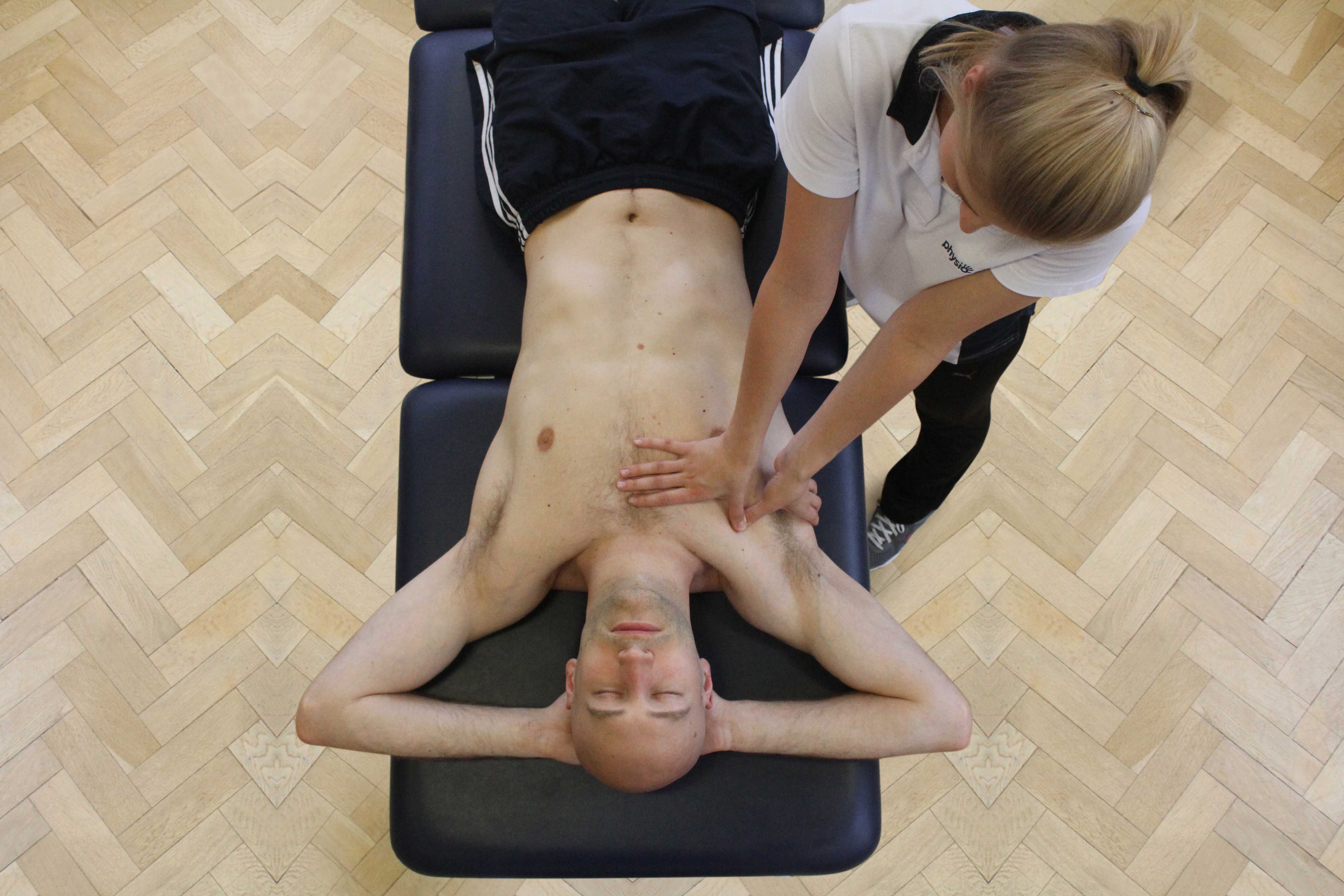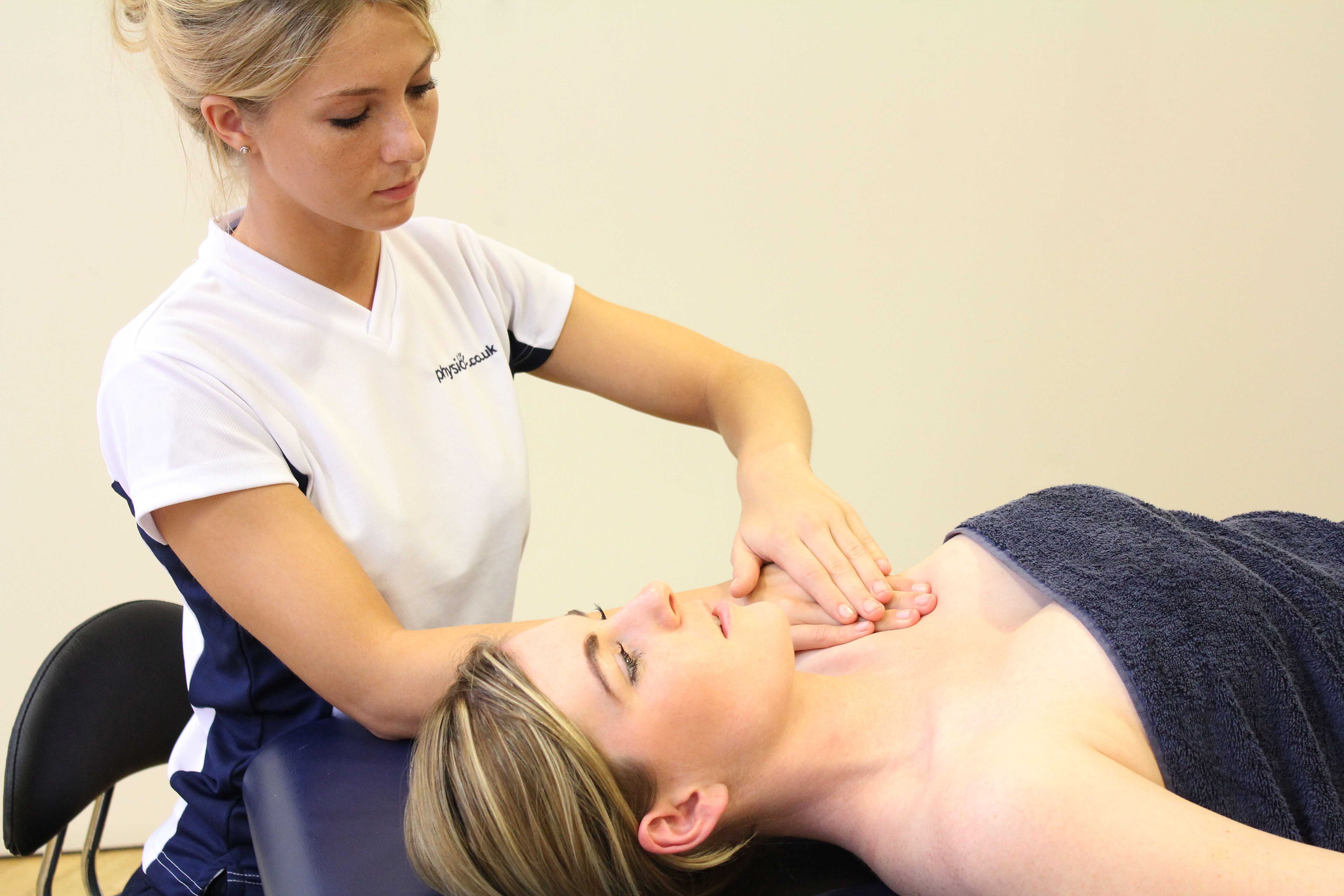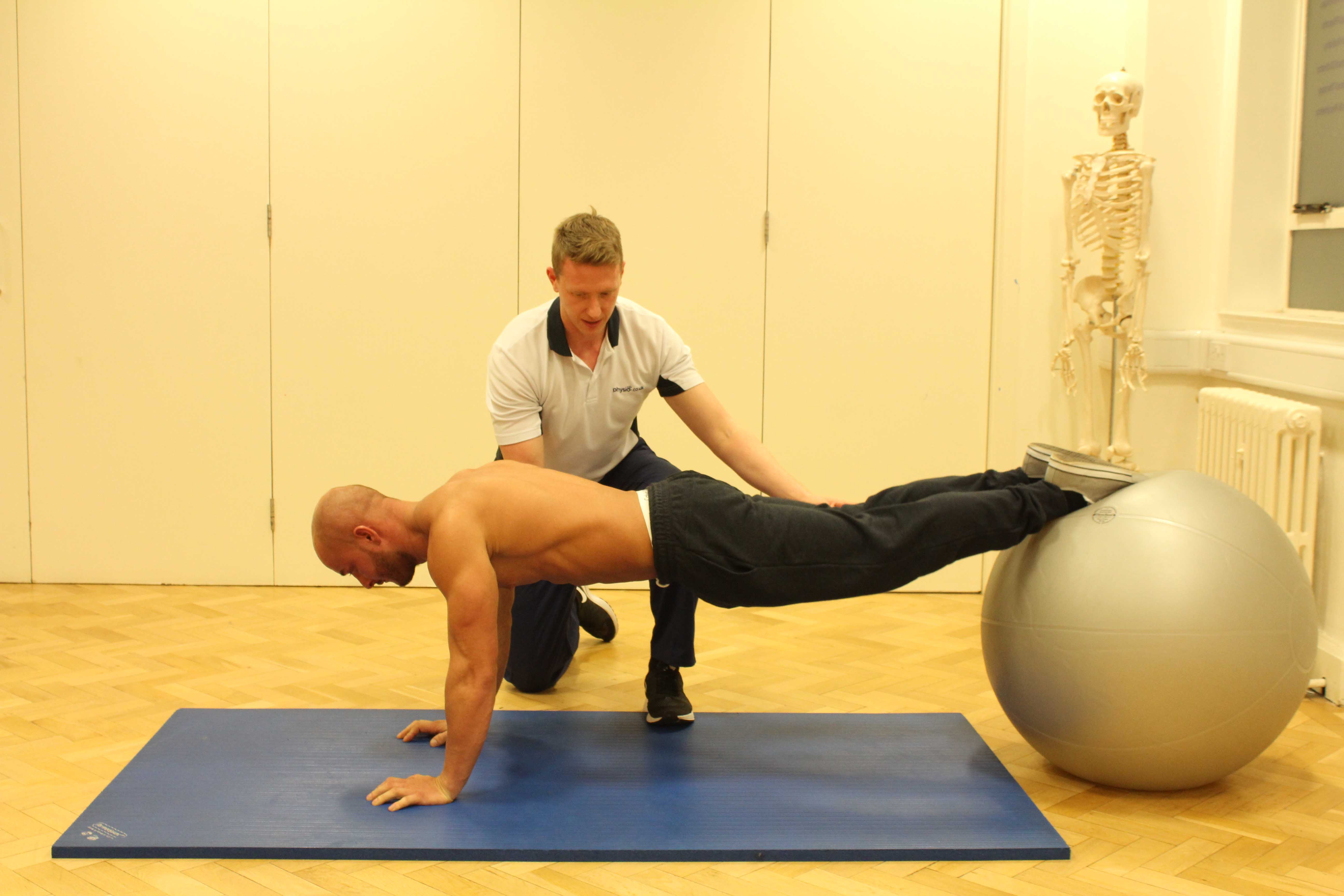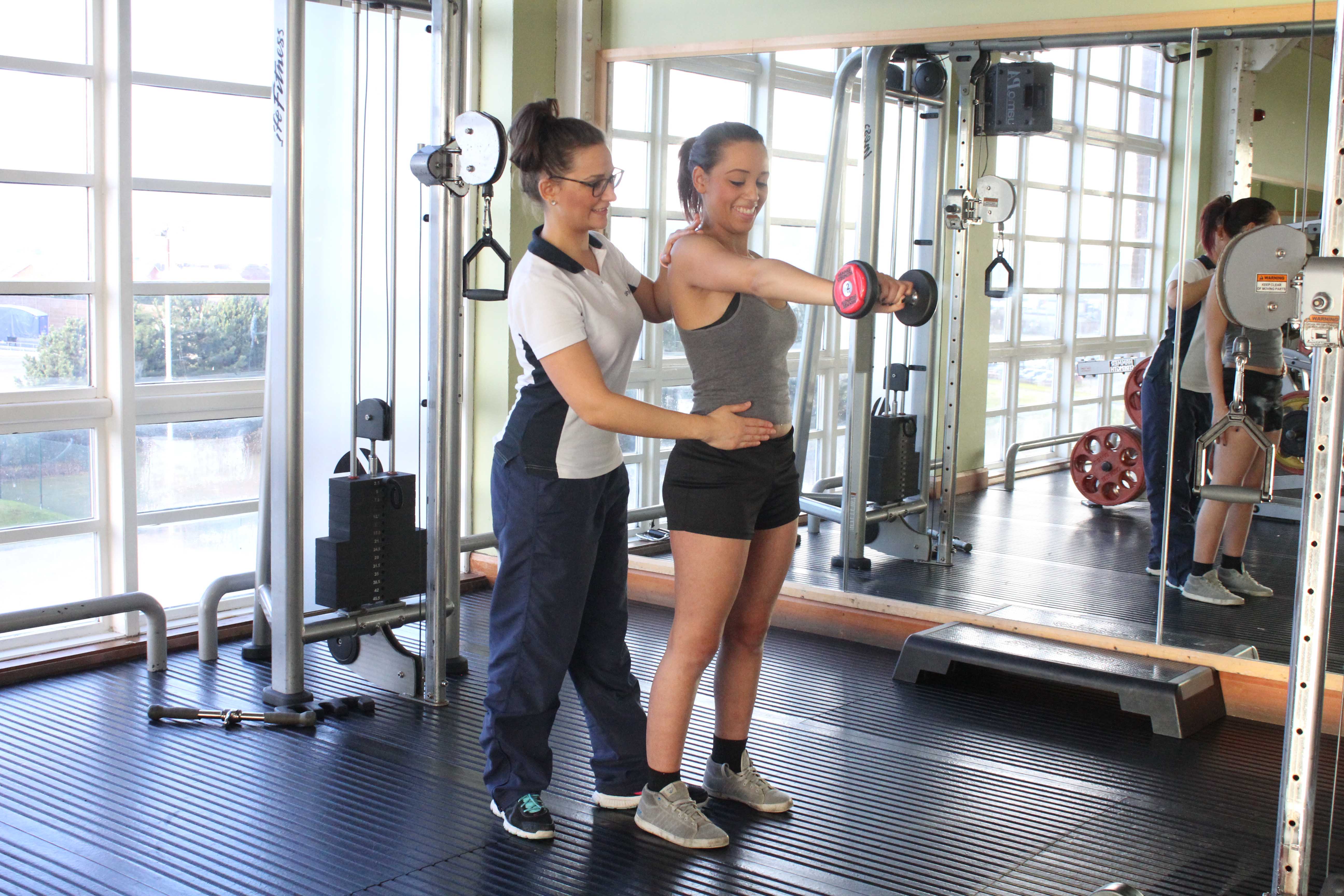What are rib trauma and rib fractures?
Rib trauma and rib fractures are damage to the rib bones that form the chest. Physiotherapy can resolve symptoms of rib trauma and fractures.
 Above: Soft tissue massage of the pectrol muscle by experienced therapist
Above: Soft tissue massage of the pectrol muscle by experienced therapistHow do rib trauma and rib fractures happen?
Rib trauma is commonly caused by a direct blow to the chest. This most commonly occurs in contact sports such as football and rugby. The trauma from a blow can cause a range of injuries from rib bruising to a single or multiple rib fractures.
 Above: Trigger point massage applied to the chest muscles by a specialist MSK therapist
Above: Trigger point massage applied to the chest muscles by a specialist MSK therapistWhat are the symptoms of rib trauma and rib fractures?
Rib trauma causes sharp, intense pain at the site of the injury and is made worse by deep breathing or coughing. Other symptoms include:
What should I do if I have rib trauma or rib fractures?
Ice should be applied to the injured site for 15–20 minutes every 1–2 hours. Ideally, this should be applied using a bag of frozen peas or crushed ice wrapped in a moist cloth or towel. You should continue icing regularly until your initial assessment with a physiotherapist. This appointment should be arranged as soon as possible following the injury. If you are having trouble breathing you should go to the nearest accident emergency department immediately.
 Above: Progressive strength training for the chest muscles supervised by specialist MSK physiotherapist
Above: Progressive strength training for the chest muscles supervised by specialist MSK physiotherapistPhysiotherapy treatment for rib trauma and rib fractures.
The assistance of a physiotherapist is important in the treatment of rib trauma. Initially, your physiotherapist can determine which tissues have been damaged and the extent of the damage. This may require referral for an X-ray to image the rib cage. From the assessment, a determination of how long the injury is expected to take to heal can be provided and a treatment plan developed. Treatment may involve:
What shouldn’t I do if I have rib trauma or rib fractures?
If you have or suspect you have rib trauma, you should avoid activities that can increase blood flow to the injured area as these may increase bleeding and swelling around the injured structures and potentially prolong your recovery. This includes hot showers, heat rubs, consumption of alcohol and excessive activity.
 Above: Progressive strength training for the chest muscles supervised by specialist MSK physiotherapist
Above: Progressive strength training for the chest muscles supervised by specialist MSK physiotherapistCould there be any long-term effects from rib trauma or rib fractures?
Rib trauma usually heals within a number of weeks without any long-term effects. However, a small proportion of rib injuries can cause longer-term effects. Prolonged periods of recovery can be caused if, when the ribs are damaged, underlying structures are also involved; these include the lungs, liver, spleen and kidneys.
To arrange a physiotherapy assessment call Physio.co.uk on 0330 088 7800 or book online.

 0330 088 7800
0330 088 7800

































